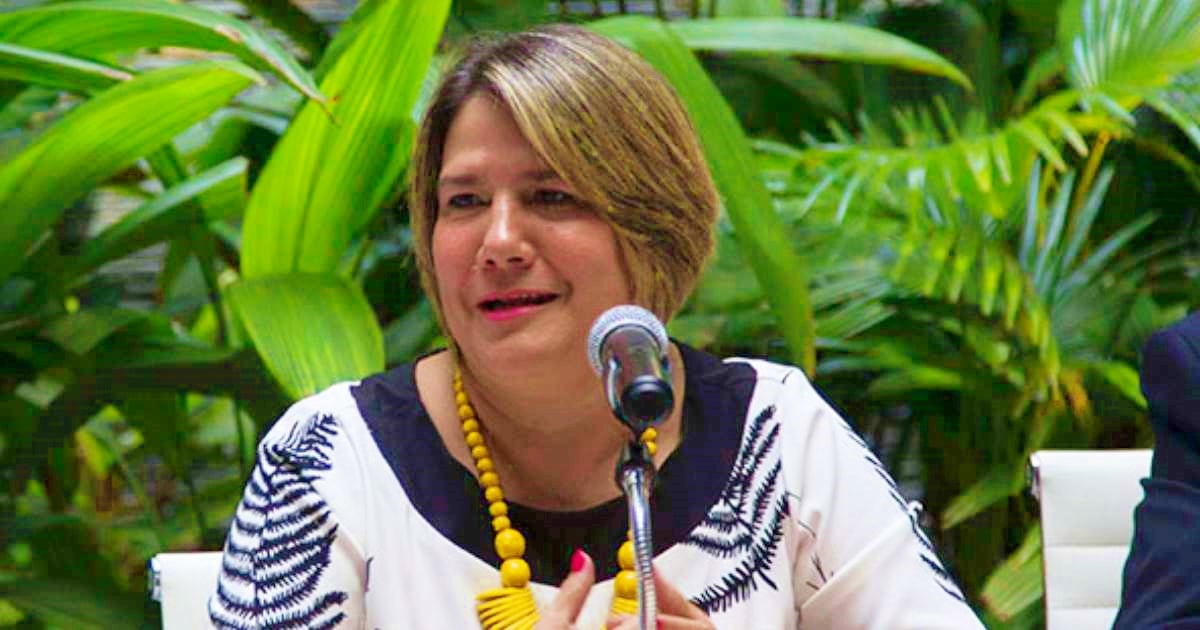
The Observatory of Academic Freedom (OLA) issued a complaint against Lis Cuesta Peraza's participation in high-level scientific forums in Cuba, arguing that her presence is not justified by proven professional expertise, but instead responds to influence peddling and a cult of personality in the Cuban academy.
Cuesta, the wife of Cuban ruler Miguel Díaz-Canel, has faced criticism following her intervention at the I Symposium on Sports, Environment, and Society, held from September 18 to 21 in Varadero.
The event, sponsored by the National Institute of Sports, Physical Education, and Recreation (INDER), aimed to promote inclusion in physical activity and sports, as well as human development in a healthy environment.
However, the focus was on the presentation by Cuesta Peraza, titled "Social Inclusion, a Principle of the Export of Academic Services from Cuba." The conference addressed topics such as globalization and the challenges facing Cuban sports, based on his doctoral thesis, which has been subject to scrutiny.
Irregularities in Cuesta's academic trajectory
Cuesta Peraza's doctoral thesis, defended in 2023, has raised doubts about the rigor and transparency of the process that granted him the scientific degree.
Cuesta presented his work co-authored with Silvia Navarro Quintero, a specialist from the Central Institute of Pedagogical Sciences, and according to various academics, his research lacks the necessary scientific backing, as it only has a few published articles, most of which are co-authored.
Furthermore, there is no evidence that Cuesta Peraza meets the English language proficiency requirement, an international standard for obtaining a doctorate in Cuba.
The exiled academic José Raúl Gallego denounced that this case is a reflection of the degradation of academic standards in the country. According to Gallego, obtaining scientific degrees has become a facilitated process to meet accreditation quotas, rather than a recognition of merit and rigorous research.
This trend has been particularly evident in doctoral programs in education, which have been criticized for being "mass production" to meet institutional demands for staff with advanced degrees.
The connection between academia and politics in Cuba
The participation of political figures in the Cuban academy has been a recurring practice, which undermines the legitimacy of the scientific degrees awarded. Díaz-Canel himself benefited from a similar process when he was Minister of Higher Education without a notable academic background.
The defense of Cuesta Peraza's thesis, held shortly after her husband's, reinforces the perception that these titles are granted to politically legitimize high officials rather than to recognize their academic merits.
The presence of Cuesta Peraza in relevant academic forums and her participation in international events represent a danger, according to Gallego, as it projects an image of "legitimization" that does not correspond to her actual competencies.
Although her title of Doctor in Pedagogical Sciences has been defended by some high-ranking officials of the regime, the academic community has openly expressed its doubts about the validity of her merits.
The mass production of academic degrees: a governmental strategy
The granting of scientific degrees in Cuba has been criticized as part of a government strategy to increase revenues through the sale of academic services.
Clara Lucía Vilasánchez, in her master's thesis on the export of academic services, identified several threats to the current model, such as brain drain and competition from internationally prestigious institutions.
The government has prioritized the commercialization of these services, which has led to a decline in the quality and prestige of higher education in the country.
Controversial recognitions and speeches aligned with the government
In June, Cuesta Peraza received the title of "Woman of Sciences" from the World Council of Academics and University Researchers (COMAU) at an event where she took the opportunity to highlight the fight against machismo in Cuba.
However, the National Program for the Advancement of Women, led by the Federation of Cuban Women, has been criticized for its ineffectiveness in the fight against gender violence and for silencing the most serious cases.
OLA argues that Cuesta Peraza's insertion into the Cuban academy responds to a government strategy to create a scientific facade that reinforces the regime's image, despite its numerous communication errors and lack of genuine interest in research.
This represents a devaluation of the intellectual dignity of the profession and a risk for the future of higher education in Cuba, concluded the Observatory in its statement.
What do you think?
COMMENTFiled under: